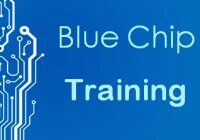 Overview
Overview
React is a Javascript library for building fast and smooth interactive web pages. Together with the Flux architecture and the GraphQL query language, extremely powerful and efficient web applications can be built.
In this instructor-led, live training, participants will learn how to build React applications using Flux and GraphQL. The course covers installation, setup, integration, testing, deployment and best practices as it walks participants through the creation of a series of sample applications that demonstrate how to add additional levels of complexity and “coolness” to an application using the most advanced toolkits and techniques.
Developing applications with React requires a different kind of thinking, compared to what some developers are accustomed to, especially when coming from the mindset of other MVC frameworks such as AngularJS and Bootstrap.
This training covers the fundamentals behind of the technologies used each step of the way so that participants are not only able to build a functional application, but also understand why a particular approach is used. This lays the groundwork for thinking independently and creatively about the design and the desired results for building their own applications in the future.
Format of the course
- Part lecture, part discussion, exercises and heavy hands-on practice
Requirements
- Web application development experience
- Javascript programming experience
- Familiarity with React
Audience
- Developers
Course Outline
Introduction
- React vs Angular and other Frameworks
Understanding React
- JSX, Components and Props, the Component Life Cycle, etc.
- Managing application state vs data state
Writing React Applications with ES6
- Syntax and ES6+ features to watch out for
Setting up the Development Environment
Overview of Node.js
Installing and Configuring Node.js
Overview of Webpack and Babel
- Understanding “transformation” (translating JSX into JavaScript)
Installing and Configuring Webpack
Installing and Configuring Babel
Installing React and ReactDOM
Writing Your First React Application
Configuring WebPack to Watch for Changes to Source Files
Configuring npm as a Tool Runner
Extending the React Application with New Components
Implement the Flux and Redux Architecture into a React Application
Understanding Flux and Redux
- Stateless Components, Actions, Reducers, Dispatchers, Middleware, Containers, etc.
Building Multiple Views into the React Application
Installing and Configuring Redux
Creating a Simple To-do List with Flux/Redux (with mock server API)
Integrating a Backend with your React Application: GraphQL and Apollo
Overview of GraphQL
- Data Types, Schemas, Graph Structure, and Integration with React
- Limitations of Restful Routing
- GraphQL vs SQL
Writing a GraphQL Query
Authenticating Users
Integrating React Router with GraphQL
Building a Simple Blog with React and GraphQL
Testing your React Application
Processing React Applications with npm Command-line Scripts
Troubleshooting
Structuring the App Repository
Best Practices for Writing React Code
Deploying Your React Application
A Word on Mobile Applications with React Native
Summary and Conclusion
